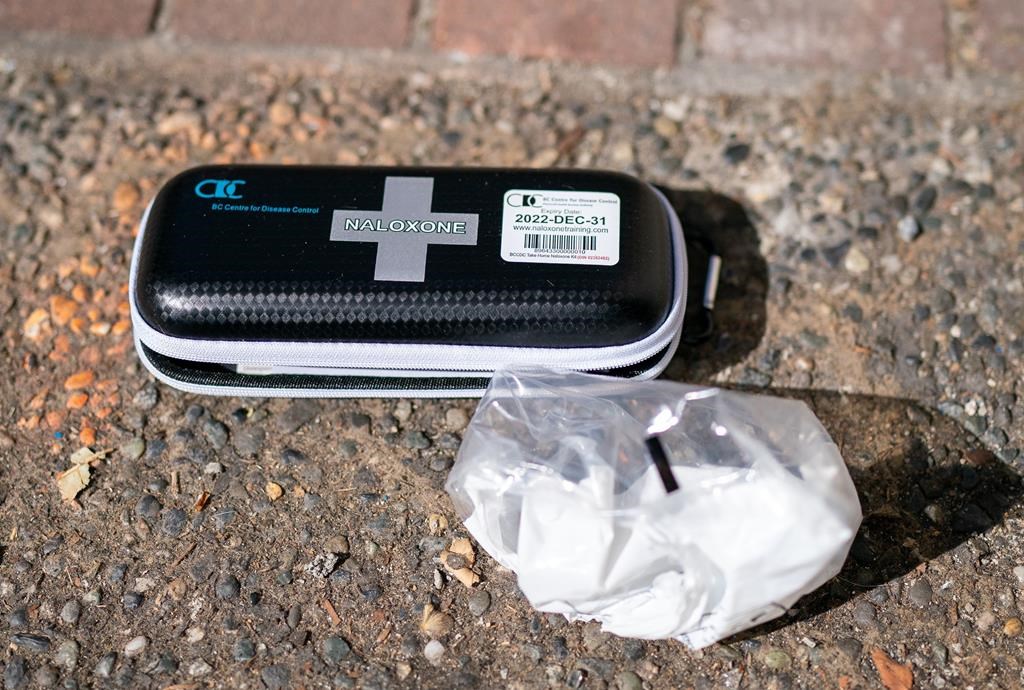Interior Health has issued drug alerts for two Okanagan cities where a higher than usual number of overdoses are being reported.

In Penticton, a drug that appears as a “light green chunk” and is sold as “down” is being flagged for having high amounts of fentanyl and may contain benzos.
The alert says the drug comes with a high risk of overdosing, long periods of unconsciousness and sleepiness.

The alert is in place until Thursday, Jan. 27.
In Kelowna, a drug that appears as “purple chunks with a chalky texture” is also being sold as down.
According to the Interior Health alert, it contains fentanyl, benzodiazepines and possibly carfentanil.
“This substance has resulted in several drug poisonings in the last week,” reads the alert. Those who take it face a high risk of overdose and long periods of unconsciousness.
- Canadian man dies during Texas Ironman event. His widow wants answers as to why
- ‘Sciatica was gone’: hospital performs robot-assisted spinal surgery in Canadian first
- Canadians more likely to eat food past best-before date. What are the risks?
- Treatment from female doctors leads to lower death rates, study finds
In early December 2021, a press release from the BC Coroner’s Office indicated there were 143 overdose deaths in the Okanagan until the end of October, putting it on track to be the deadliest year of the opioid crisis. Of these deaths, 23 were in the last month.
In comparison, there were 147 overdose deaths in the Okanagan in 2020, while the most overdose deaths in the Okanagan occurred in 2017, when there were 155 fatalities.
“This is a health crisis,” Lisa Lapointe, B.C.’s chief coroner, said in a press release.
“I cannot stress enough how urgent this emergency has become. A comprehensive plan to ensure access to safe supply for the thousands of B.C. residents dependent on these substances is essential. Shifting from punishment and stigmatizing regime to a decriminalized, health-focused model is also a critical step to reduce suffering and save lives.”




Comments